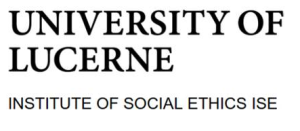This workshop will bring together leading academics, experts, and practitioners to assess the emergent research field of digital peacebuilding and explore how it can critically influence policy and practice
From cutting-edge tools such as satellite imaging and artificial intelligence to everyday applications like video calls and social media – digital technologies have become indispensable to contemporary efforts to end violent conflicts and build peace. Over the past decades, the digital transformation of peacebuilding as a professional practice has caused fundamental changes to the discourses and practices surrounding peace and conflict, with far-reaching impacts on power relations and information flows.
These developments beg the question of how academics researching digital peacebuilding have influenced policies and practices over the past 20 years- and how they may do so effectively in the future. What potential and challenges does the proclamation of a potential digital turn in peace and conflict studies harbour for academics and practitioners? How can they position themselves critically vis-à-vis the performative appeal of digitalisation while not losing sight of its human and political dimension? And how can we all contribute to developing alternative digital futures that serve the most vulnerable and reduce risks of violence and conflict?
To explore these questions, this workshop (co-organised by the Apomediated Peace Project at Centre on Conflict, Development and Peacebuilding (CCDP), Geneva Graduate Institute, the Global PeaceTech Hub at the Florence School of Transnational Governance EUI, in partnership with the Council on Technology and Social Cohesion and reState Foundation) will bring together leading academics, experts, and practitioners to assess the emergent research field of digital peacebuilding and explore how it can critically influence policy and practice.
Participation in this event is by invitation only. For more information, please contact Michele Giovanardi











